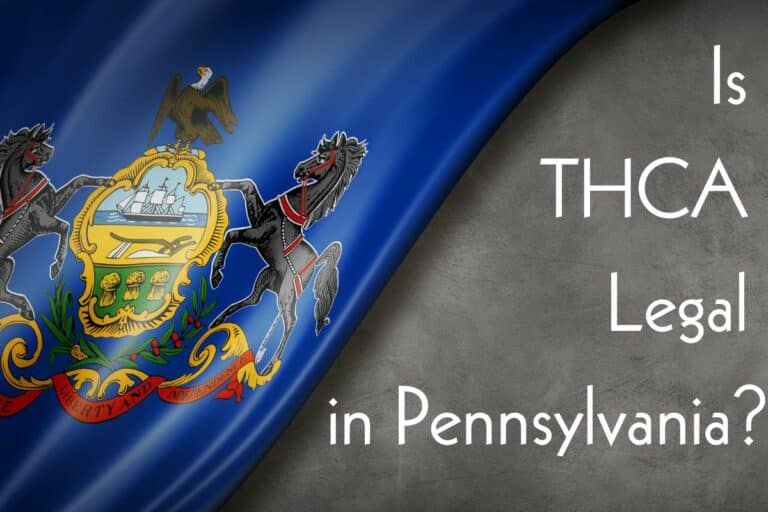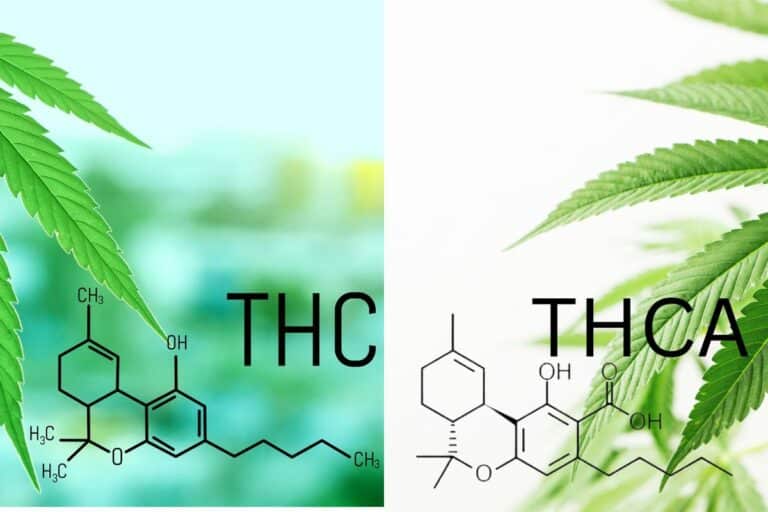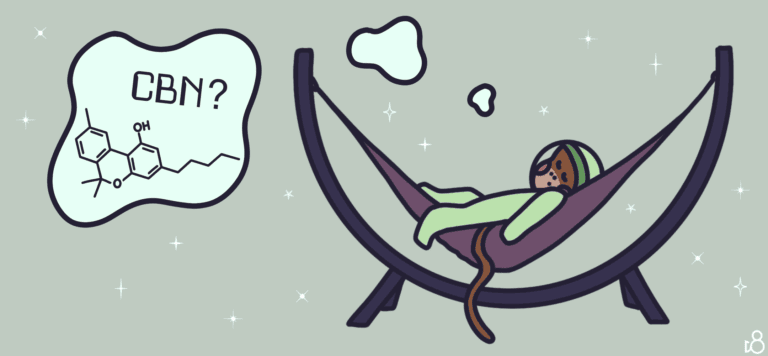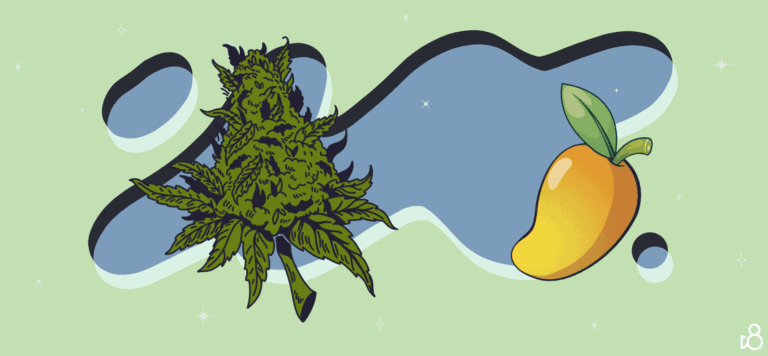Is Delta-11 THC Legal in North Carolina? Clarifying State Regulations
Plunging into the world of cannabis rules, like the mystery of delta-11, is like hopping on a wild amusement park ride. You might catch yourself wondering, “Is it okay to keep these goodies where I live?” Over in North Carolina, the rules for hemp goodies have really changed, all thanks to the 2018 Farm Bill. This made it A-OK to grow hemp with just a tiny bit less than 0.3% delta-9-THC. We’re here to clear up the fog and make it super simple for you. So, why stick around? You’re about to discover some cool tips that could put you ahead in the ever-twisting cannabis game.
Table of contents
Delta-11 is one such hemp-derived product that’s been gaining attention due to its psychoactive potency. With the shifting legal grounds, North Carolina residents are seeking clarity on whether this compound falls into the legal branch of hemp products or if it’s classified alongside controlled substances. Since delta-11 is not delta-9-THC, the primary psychoactive ingredient in marijuana, the laws pertaining specifically to delta-11 may differ.
However, the state’s stance on similarly structured compounds like delta-8-THC suggests that there is a need to clarify the legality of these substances. If a compound like delta-8-THC can be considered as a controlled substance analogue of delta-9-THC, this could influence North Carolina’s legal approach to delta-11. For accurate and up-to-date information on the legal nuances of delta-11 and related hemp-derived compounds, it is important to review the specific state regulations and stay informed with the latest legislative updates.
Overview of Cannabis Laws in North Carolina
Cannabis laws in North Carolina are defined by specific state legislation and are also influenced by federal law, especially the 2018 Farm Bill. Understanding these laws is crucial to determining the legality of various cannabis compounds in the state.
Current State Legislation
In North Carolina, your understanding of state law regarding cannabis is crucial. Currently, cannabis for recreational use remains illegal. However, North Carolina has a limited medical cannabis law, the “North Carolina Epilepsy Alternative Treatment Act,” which allows the use of hemp extract with less than 0.9% THC by weight and at least 5% CBD by weight for the treatment of intractable epilepsy. As you navigate the complexities of cannabis laws, be aware that possession of small amounts of cannabis has been decriminalized, meaning that minor offenses could result in fines rather than jail time.
Federal Law and the 2018 Farm Bill
Federal regulations play a significant role in your understanding of the legality of cannabis in North Carolina. The 2018 Farm Bill is a key piece of legislation, having removed hemp, defined as cannabis with less than 0.3% THC, from the Controlled Substances Act. This effectively legalized the commercial production and sale of hemp and its extracts across the United States, including North Carolina.
However, the Bill does not affect the federal legality of marijuana, which remains a Schedule I controlled substance. It’s essential you comprehend that while the Farm Bill opens doors for hemp, it also implements strict regulations on the production and sale of hemp-derived products, ensuring alignment with state laws and the USDA.
Remember, navigating the legality of cannabis compounds, like delta-8 or delta-11 THC, in North Carolina will require close attention to the evolving landscape of state and federal law.
Understanding Delta-11 THC
In exploring the nuances of cannabinoids, particularly Delta-11 THC, you’ll uncover its distinct chemical makeup and the psychoactive effects that differentiate it from its more familiar counterparts, Delta-9 and Delta-8 THC. Understanding these aspects is crucial for comprehending its legality and usage.
Chemical Properties and Effects
Delta-11 THC, a cannabinoid found in both marijuana and industrial hemp, possesses unique chemical properties that influence its psychoactive effects. Structurally, it’s an isomer of THC, meaning it shares the same molecular formula but has a different arrangement of atoms. The influence of Delta-11 on the body’s endocannabinoid system results in its psychoactive effects, which can alter perception, mood, and consciousness. However, the extent and nature of these effects may vary considerably from person to person.
Comparison with Delta-9 and Delta-8 THC
Delta-11, along with Delta-9 and Delta-8, belongs to the THC isomers family but differs in its interaction with the body’s receptors. Delta-9 THC is the most prominent psychoactive component in cannabis and is known for its potent effects. Delta-8 THC, on the other hand, is a hemp-derived cannabinoid that is often touted as having a milder psychoactive impact than Delta-9. While Delta-11 shares properties with these cannabinoids, the precise effects and potency compared to Delta-9 and Delta-8 are still being studied, which contributes to the ongoing discussions about its legal status.
Legal Status of Delta-11 in North Carolina
The legal landscape regarding Delta-11 THC in North Carolina can be intricate, considering state-specific regulations surrounding hemp-derived products. Your understanding of the current legal framework is essential for compliance with state laws.
Detailing Delta-11 Legality
Delta-11 THC, like other cannabinoids found in hemp, is subject to complex legislation. In North Carolina, hemp-derived products are legal under certain conditions. However, Delta-11 falls into a grey area due to its similarities with Delta-9 THC, which is a controlled substance. As of the current state law, Delta-11 is not specifically mentioned, thus its legal status remains ambiguous. It’s important to recognize that the state operates under the federal Farm Bill but also enforces its regulations, which can affect the legality of such compounds. Always ensure that you are following the latest state law updates.
Hemp-Derived Products Regulation
In North Carolina, regulations dictate that hemp-derived products should not contain more than 0.3% Delta-9 THC, aligning with federal guidelines. Although hemp is legally cultivated and utilized for a variety of products, the state law does not explicitly address the legality of every individual cannabinoid derived from hemp. Any substance categorized as a Schedule I substance, without specific exemption or lower scheduling, remains illegal under the North Carolina Controlled Substances Act. Consequently, it is critical to verify whether Delta-11 is considered a controlled substance by the latest hemp laws before possession or use.
Quality and Compliance
When exploring the legality of Delta-11 and its compliance in North Carolina, it’s crucial to acknowledge both the quality assurance and the regulatory adherence required of hemp-derived products. Let’s delve into two key areas: Testing and Lab Reports, and Consumer Safety and Labeling Requirements.
Testing and Lab Reports
You should be aware that lab reports are vital in verifying the quality of hemp-derived compounds like Delta-11. These reports should come from an accredited lab, ensuring that the product meets the state regulations in terms of potency and purity. The North Carolina Department of Agriculture oversees this aspect to certify that commodities are compliant. Lab reports need to test for contaminants and the concentration of psychoactive compounds to ensure they fall within legal limits set by state law.
Consumer Safety and Labeling Requirements
Your safety as a consumer hinges on strict labeling requirements. The FDA has a set of guidelines that necessitate clear labeling, including accurate cannabinoid profiles and warnings about potential effects. Regulation mandates that hemp-derived products, including Delta-11, clearly display ingredients, source of hemp, expiration dates, and usage directions. These measures are put in place to avoid misinformation and ensure that products on the shelves comply with health standards.
Remember, in North Carolina, your assurance of quality and compliance with legal frameworks are paramount when choosing hemp-derived products.
Market Analysis and Availability
Before delving into the specifics of Delta-11 THC, it’s essential to understand the dynamics of North Carolina’s market and the factors that govern the availability of hemp products to you as a consumer.
Delta-11 THC Market Trends
The landscape of the industrial hemp market in North Carolina shows a burgeoning interest, particularly as legislation evolves. Industrial hemp, legal under Senate Bill 313, denotes a shift towards greater market potential for hemp-derived products. However, with regulatory nuances, the growth trends of cannabinoid products like Delta-11 THC are closely monitored by both state authorities and market participants. You should note the legal distinction between hemp, which contains lower levels of Delta-9 THC, and other forms of cannabis which are not legal in the state. The interest in CBD and other hemp products is rising, yet the market for Delta-11 THC remains precarious given the legal landscape.
Consumer Access and Purchase Points
When it comes to accessing Delta-11 THC and other hemp products, your options in North Carolina hinge on legality and market availability. While Delta-9 THC remains illegal, the availability of hemp-derived products depends on state-sanctioned avenues. This availability is a double-sided coin; on one hand, there’s an increasing presence of CBD retailers across the state who may offer a variety of hemp-based products, yet they navigate tight regulations around medical claims and CBD content.
On the other hand, the research institutions and state departments of agriculture have permission under certain circumstances to distribute hemp products, which could include Delta-11 THC if compliant with federal and state laws. As a customer in North Carolina, your purchase points for legal hemp products predominantly include licensed dispensaries and approved online retailers, with the product range varying based on local laws and the enforcement thereof.
Health Implications of Delta-11 THC
Delta-11 THC, a minor cannabinoid with psychoactive effects, poses both potential therapeutic benefits and risks to your health. As with any compound affecting cognitive function, it’s crucial to understand its impact.
Potential Health Benefits
You may experience pain relief with the use of Delta-11 THC since it has properties comparable to other cannabinoids that interact with your body’s endocannabinoid system. The therapeutic benefits might include:
- Pain management: Studies on cannabinoids suggest a reduction in chronic pain symptoms.
- Mood regulation: Some users report improved mood and a sense of well-being.
Known Side Effects
With the psychoactive properties of Delta-11 THC come possible side effects. Be aware of the risks:
- Cognitive impairments: You could face temporary challenges in concentration or memory.
- Physical reactions: These might include dizziness, dry mouth, or changes in appetite.
Remember, while Delta-11 THC can offer relief and benefits, it’s important to consider the balance between these potential health effects and the known risks.
Legal Perspectives Nationwide
The legal landscape for delta-11 and similar compounds varies significantly across the United States, with state regulations and federal law often at odds. It is vital for you to understand the nuances of these laws, as the legalities of such substances can differ from one state to another.
Variations in State Regulations
You’ll discover that state laws regarding delta-11 and other hemp-derived compounds are far from uniform. For example, while some states may allow the sale and consumption of delta-11 due to it being derived from hemp, others have not specifically legalized it, leading to a patchwork of state legislation. As a cannabis compound similar to delta-8-THC and delta-9-THC, which are more commonly known, delta-11 falls into a grey area in certain jurisdictions. In some cases, ambiguous laws leave room for interpretation at the state level, potentially leading to legal challenges or changes in the future.
Interstate Legal Discrepancies
When it comes to federal law, delta-11’s legality is tied to the legality of hemp-derived compounds. Hemp was federally legalized under the 2018 Farm Bill; however, the synthesis of delta-11 from CBD could be seen as a modification to the compound, possibly placing it outside of what is considered federally legal. This creates discrepancies between federal and state laws, as individual states may have regulations that deviate from the federal stance. It is important for you to check the most current state legislation if you are involved in the purchase, sale, or use of delta-11, especially when crossing state lines where the compound might not be legal.
Frequently Asked Questions
In North Carolina, understanding the legal status of Delta-11 is crucial before making any purchases. This section addresses the most common inquiries regarding its legality and usage.
What are the legal considerations for purchasing Delta-11 products in North Carolina?
You need to be aware that only certain types of cannabinoid products are legal in North Carolina. Check the latest state legislature to ensure compliance with state law before purchasing Delta-11 products.
Can consumption of Delta-11 result in psychoactive effects?
Yes, Delta-11, like other cannabinoids such as Delta-9 THC, can produce psychoactive effects. Make sure you are aware of the effects before using these substances.
How does the potency of Delta-11 compare to Delta-9?
The potency of Delta-11 has similarities to Delta-9, but individual reactions can vary. For precise information on how these compounds compare, it’s best to consult scientific research.
Are there any specific regulations for Delta-11 in North Carolina versus other states?
State laws can differ significantly. North Carolina has its own set of regulations for cannabinoids, so it’s important to understand these in comparison to other states.
What should consumers know about the safety and side effects of Delta-11?
Be conscious of both the potential health benefits and risks associated with Delta-11. It’s advised to use these products with caution and to seek products that have undergone thorough testing.
Where can individuals legally obtain Delta-11 products in North Carolina?
To legally obtain Delta-11 items, look for licensed dispensaries or retailers that comply with North Carolina’s hemp product laws. Always verify that the source is reputable and that the products are produced in accordance with state regulations.







